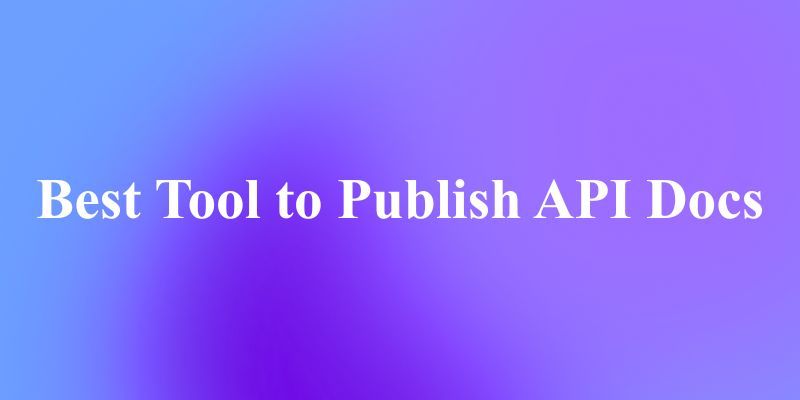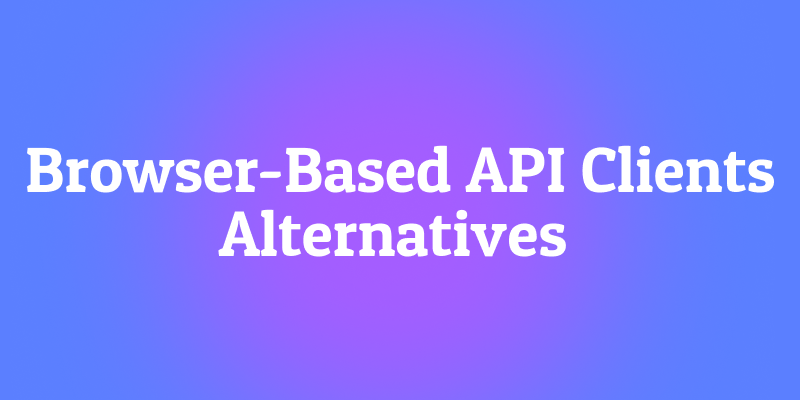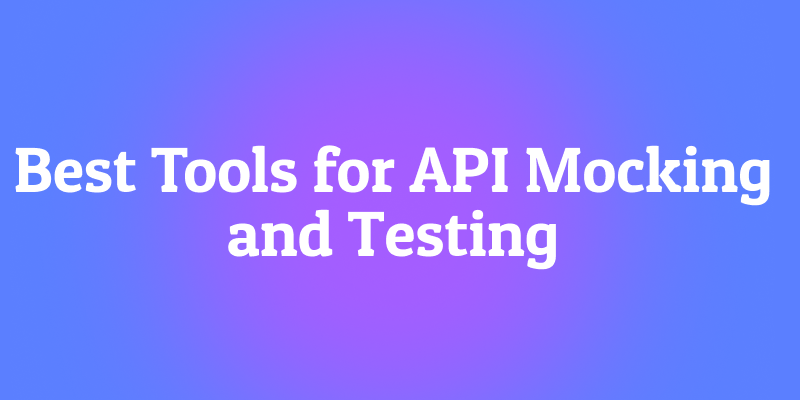API testing tools provide developers with the necessary functionalities to validate the performance, security, and reliability of APIs. They automate the API testing process, allowing for rapid feedback and iterations in the development cycle. This resource is crucial for identifying defects earlier in the process and minimizing potential risks associated with deploying faulty APIs.
In this article, we will explore the 30 best API testing tools available today, including comprehensive features that cater to various testing needs. Whether you are a developer, tester, or project manager, understanding the tools for API testing can facilitate more efficient workflows, enhance collaboration, and ultimately boost the quality of your software products.
Key Features to Look for in API Testing Tools
When selecting tools for API testing, it is vital to consider various key features that will maximize their effectiveness. Below are essential attributes to look for:
- Ease of Use: A user-friendly interface that offers a clear and straightforward experience for developers and testers can significantly enhance productivity. Tools with comprehensive documentation and intuitive navigation can help users quickly create and manage test cases.
- Automation Capabilities: Automation is critical in reducing time spent on repetitive testing tasks. Look for API testing platforms that offer features like scheduled tests and automated regression testing.
- Support for Multiple Protocols: APIs can use different protocols such as REST, SOAP, or GraphQL. The right API testing tools should support the protocols relevant to your applications and allow for versatile testing approaches.
- Comprehensive Reporting: Quality reporting tools provide insights into test results and API performance. Ensure that the tools for API testing you choose deliver clear visualizations of metrics, errors, and overall status.
- Integration Options: API testing tools should seamlessly integrate with existing development workflows, CI/CD pipelines, and version control systems. This integration fosters collaboration among teams and facilitates continuous testing practices.
- Security Testing Features: Security cannot be compromised in API interactions. Look for tools that include capabilities to test for vulnerabilities, such as SQL injection or data exposure.
- Community and Support: A strong user community along with responsive customer support can greatly assist users in resolving issues and optimizing their usage of API testing tools.
With these features in mind, let's delve into the 30 best API testing tools that stand out in today's market.
Top 30 API Testing Tools
1. Apidog
Apidog is an all-in-one API development tool designed to streamline the entire API lifecycle, including designing, documenting, mocking, and testing APIs. Its API testing feature enhances the development process by offering a robust platform for comprehensive automated testing and performance monitoring. Developers can effortlessly create test cases from API specifications using Apidog's intuitive user interface. The platform also provides a flexible testing environment, enabling users to simulate real-world conditions, ensuring APIs are thoroughly tested and ready for production.
Key Features:
- User-friendly interface
- Automated test case creation with no need to write scripts
- Automated API testing
- Flexible test scenarios with visualized designer
- Performance monitoring capabilities
- Scheduled API tests at regular intervals
2. Postman
Postman has become synonymous with API testing. Its feature-rich environment allows developers to create, share, and document APIs efficiently. Users can leverage its extensive library for writing and executing test scripts, ensuring rigorous testing. With its collaboration options, teams can work together seamlessly on projects.
Key Features:
- Rich scripting capabilities
- Collaborative working environment
- Comprehensive documentation support
3. SoapUI
SoapUI is a staple for testing SOAP APIs, although it also supports RESTful APIs. It provides a wide range of functionality, including security testing and performance testing. Its script-based approach allows for advanced test cases and greater flexibility.
Key Features:
- Comprehensive protocol support
- In-depth security testing capabilities
- Performance testing features
4. Katalon Studio
Katalon Studio integrates API testing with web and mobile testing in a single platform. It is designed for both beginners and experienced developers, offering a balance between ease of use and advanced functionalities. Automated test case generation and robust reporting features make it a popular choice.
Key Features:
- Comprehensive cross-platform testing
- Automated test generation
- Detailed reporting and insights
5. JMeter
Apache JMeter is well-known for load testing and performance monitoring, but it also excels in API testing. It allows developers to create complex test scenarios and analyze API performance under different conditions. JMeter's extensibility via plugins makes it a versatile choice.
Key Features:
- Load testing and performance analysis
- Support for multiple protocols
- Extensive plugin ecosystem
6. Insomnia
Insomnia simplifies the process of designing and debugging APIs. It boasts a user-friendly interface that enables quick setup and testing of different endpoints. Insomnia's flexibility allows developers to test RESTful services in a streamlined manner.
Key Features:
- Elegant user interface
- Easy endpoint testing
- Built-in environment management features
7. Assertible
Assertible focuses on automating API testing, enabling continuous testing early in the development cycle. It integrates flawlessly with CI/CD tools, ensuring that tests are executed as part of the deployment process. Users can validate API responses against expected outcomes.
Key Features:
- Continuous API testing
- JSON schema validation
- CI/CD integration capabilities
8. ReadyAPI
ReadyAPI, developed by SmartBear, combines several powerful testing solutions into one package. It provides an extensive toolkit for performance, security, and functional testing. ReadyAPI is known for its impressive user experience and rich set of features.
Key Features:
- Comprehensive API testing suite
- Advanced security and performance features
- User-friendly interface
9. Rest-Assured
Rest-Assured is an open-source Java-based library that simplifies testing of REST APIs. Its syntax is user-friendly, making it a popular choice among Java developers. It offers a wide range of features, including support for different authentication methods.
Key Features:
- Open-source and flexible
- User-friendly syntax
- Multiple authentication method support
10. Karate
Karate is an open-source tool that simplifies API test automation by combining testing and mocking into a single framework. It is especially popular for its support of BDD (Behavior Driven Development).
Key Features:
- Test and mock APIs in the same framework
- Enables behavior-driven development
- Supports both REST and SOAP APIs
11. OpenAPI Validator
OpenAPI Validator allows for the validation of APIs against their OpenAPI specifications. It ensures that API responses conform to the defined standards, making it easier to maintain API integrity. This tool is essential for those who rely heavily on documentation.
Key Features:
- API specification compliance testing
- Compatibility with multiple programming languages
- Integration with CI pipelines
12. API Fortress
API Fortress is a feature-packed API testing tool that emphasizes collaboration and test automation. It allows teams to create, manage, and execute tests seamlessly, providing real-time information on performance and health.
Key Features:
- Comprehensive test management
- Collaboration-focused design
- Real-time insights and performance reports
13. Pact
Pact is a contract testing tool that ensures different services in a microservices architecture can integrate seamlessly. It emphasizes consumer-driven contracts which facilitate easier integration and collaboration between client and server development teams.
Key Features:
- Consumer-driven contract testing
- Microservices architecture support
- Focus on collaboration between teams
14. SwaggerHub Explore
SwaggerHub Explore is an invaluable tool for testing APIs directly from your browser. It allows quick API testing without the need for extensive setup. Its integration with Swagger’s broader ecosystem enhances its efficacy in documenting APIs.
- Key Features:
- Browser-based testing feature
- Integration with Swagger UI
- Quick setup for rapid testing
15. Tricentis Tosca
Tricentis Tosca offers a comprehensive suite for automated testing, including web services and APIs. It emphasizes continuous testing and integrates smoothly with CI/CD tools, increasing overall testing efficiency.
Key Features:
- Support for continuous testing efforts
- Comprehensive API testing functionalities
- Smooth CI/CD integration
16. NeoLoad
NeoLoad is tailored for performance testing and load testing. It supports various protocols and is capable of simulating numerous users simultaneously, making it ideal for businesses expecting high traffic on their applications.
Key Features:
- Load and performance testing features
- Real-time performance monitoring
- Multi-protocol support
17. TestCafe
TestCafe is primarily known for UI testing but includes features for API testing as well. It integrates with various tools and frameworks, making it a flexible option in the development toolbox. TestCafe’s easy setup allows for fast test creation.
Key Features:
- Cross-platform testing capabilities
- User-friendly setup and management
- Compatibility with multiple testing frameworks
18. Citrus
Citrus is an open-source framework designed for integration testing, including APIs. It focuses on simulating API interactions to ensure reliability in a microservices environment. Its accounting capabilities help manage complex scenarios effectively.
Key Features:
- Open-source integration testing tool
- Support for complex scenario modeling
- Emphasis on microservices architecture
19. HammerDB
HammerDB provides performance testing features that apply to databases and APIs alike. Its emphasis on benchmarking databases allows users to validate data retrieval and transactions effectively, ensuring overall application performance.
Key Features:
- Performance testing for databases and APIs
- Open-source availability
- Robust benchmarking capabilities
20. Fiddler
Fiddler is a web debugging proxy that provides insights into HTTP(S) traffic, making it a useful tool for API testing. By analyzing the data flowing between clients and servers, developers can troubleshoot issues and optimize performance.
Key Features:
- Debugging proxy for HTTP(S) traffic
- Extensive data analysis capabilities
- Simultaneous traffic monitoring
21. Gatling
Gatling is an open-source performance testing tool specifically designed for web applications, including APIs. Its high-level scripting capabilities allow for efficient testing scenarios, and it provides real-time reporting on performance metrics.
Key Features:
- Open-source performance testing framework
- High-level scripting for efficient test creation
- Real-time performance metrics reporting
22. Selenium
Selenium is a well-known testing framework primarily focused on web applications. However, it can also be leveraged for API testing by sending requests and validating responses using its scripting capabilities. Its vast community support adds to its versatility.
Key Features:
- Well-rounded testing across platforms
- Extensive community support
- Adaptability to various testing scenarios
23. Boomerang
Boomerang is designed for testing APIs with an emphasis on performance. It offers a comprehensive set of tools for simulating various network conditions, ensuring thorough testing of APIs before deployment.
Key Features:
- Performance simulation features
- Comprehensive testing environment
- User-friendly interface
24. TestNG
TestNG is a testing framework that supports diverse testing requirements, ranging from unit testing to integration testing. It is a flexible option for developers looking to implement API testing alongside other forms of testing.
Key Features:
- Versatile testing framework
- Support for a variety of testing scenarios
- Adaptable to both API and UI testing
25. MockServer
MockServer is designed for creating mock API services to simulate responses. This tool is invaluable for testing client applications without needing access to actual API services, streamlining testing and development processes.
Key Features:
- Mocking of API responses
- Flexible integration capabilities
- Support for various protocols
26. Swagger UI
Swagger UI provides interactive documentation for APIs, allowing users to understand how to interact with different endpoints. While it primarily serves as a documentation tool, it can also be leveraged for simple API testing directly from the browser.
Key Features:
- Interactive API documentation
- Direct integration with Swagger specifications
- Simple testing from the interface
27. APITool
APITool offers a comprehensive suite for automated API testing and monitoring. Its emphasis on continuous monitoring ensures that APIs remain functional post-deployment, making it a valuable asset for development teams.
Key Features:
- Continuous monitoring features
- Automated testing of APIs
- In-depth reporting and analytics
28. BlazeMeter
BlazeMeter is a comprehensive performance testing tool that also supports API testing. It allows for both functional and performance testing of APIs under different loads.
Key Features:
- Load Testing: Simulate high traffic loads to test API scalability.
- Automation Integration: Easily integrate with Jenkins for continuous testing.
- Detailed Reports: Get insights into API performance under stress.
29. RestAssured
RestAssured is a Java-based library that simplifies testing REST APIs. It’s widely used in Java environments and offers a seamless way to create automated tests.
Key Features:
- Java Integration: Built specifically for Java environments.
- Automation Support: Create robust automated API tests.
- Ease of Use: Simplifies API testing with its intuitive DSL.
30. TestMace
TestMace is an advanced API testing tool that focuses on simplicity and functionality, offering a straightforward interface for testing APIs in real time.
Key Features:
- Real-Time API Testing: Send requests and analyze responses in real time.
- Automation-Friendly: Supports automated workflows.
- Cross-Platform: Works seamlessly across different API protocols.
How to Get Started with API Testing Tools?
Getting started with tools for API testing requires a systematic approach. Below are essential steps to initiate the process:
- Identify Testing Requirements: Determine the specific needs of your project and define what APIs require testing. List down functionalities, protocols, and security concerns.
- Choose the Right Tool: Based on the identified requirements, select the API testing tools that best align with your project goals. Consider starting with user-friendly options that cater to your team's skill levels.
- Set Up the Testing Environment: Install necessary tools, configure settings, and establish a testing environment. Implementation should align with your current development practices.
- Create Test Cases: Begin developing test cases that reflect real-world scenarios your APIs may encounter. Consider both positive and negative test cases.
- Execute Tests: Run the tests created in the previous step, ensuring to document any issues that arise. Analyze results and prioritize fixing critical failures.
- Continuous Testing: Integrate testing into your CI/CD pipeline. Establish a routine for executing tests with each new release to maintain API health.
By adhering to these steps, teams can effectively implement API testing tools within their workflows, ensuring a smoother testing process.
How to Implement API Testing Tools in Your Workflow
Integrating tools for API testing into your existing workflows can enhance collaboration and efficiency. Here are steps to effectively implement API testing:
- Foster Team Collaboration: Ensure that developers, testers, and project managers understand the importance of API testing. Encourage collaboration by involving all stakeholders in testing discussions.
- Standardize Testing Processes: Establish a clear process for how API tests are created, executed, and reported. Use documentation to guide teams through the testing cycle.
- Leverage Automation: Utilize the automation features of your selected API testing tools to manage repetitive tasks efficiently. Automation can significantly reduce time in regression testing and allow for more focus on critical test cases.
- Integrate with CI/CD: Incorporate API testing tools into your Continuous Integration/Continuous Deployment (CI/CD) pipeline. Automating tests within this framework ensures they are executed regularly throughout development cycles.
- Monitor and Improve: Continuously monitor API testing results and adjust the testing processes as necessary. Strive to create an iterative feedback loop that provides ongoing insights into API performance.
By adopting these best practices, teams can ensure that API testing becomes an integral part of the development process, leading to higher-quality software outputs.
Conclusion: Picking the Right Tool to Ensure API Success
Choosing the right API testing tool is paramount in ensuring the success of software development projects. Each tool offers unique features tailored to different testing needs, from performance to security. Teams should evaluate their specific requirements and consider user interfaces, automation capabilities, and integration options.
In an increasingly interconnected software ecosystem, leveraging effective API testing tools is vital for maintaining stability and reliability. The 30 API testing tools highlighted in this article offer diverse options tailored to various testing approaches. By understanding the capabilities of each tool and implementing them effectively within workflows, development teams can enhance their API interactions and deliver superior software solutions.
Ultimately, the goal of API testing is not just to identify flaws but to foster a more resilient and efficient development environment, paving the way for innovation and success in the tech landscape.



